Health & Medicine
-
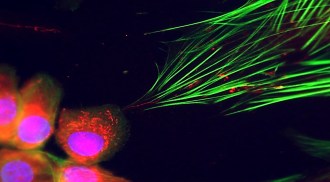 Health & Medicine
Health & MedicineCancer uses mitochondria to reprogram neighboring cells
Cancer cells transfer mitochondria through nanotubes to healthy neighboring cells, turning them into tumor-supporting accomplices, a new study shows.
By Meghan Rosen -
 Health & Medicine
Health & MedicineMore young U.S. adults report trouble with memory and focus
From 2013 to 2023, the prevalence of self-reported difficulties with memory, concentration and decision-making nearly doubled among young adults.
-
 Health & Medicine
Health & MedicinePasteurization destroys H5N1 bird flu in milk
Tests show pasteurized dairy with H5N1 remnants did not cause illness in mice, supporting safety of milk during outbreaks.
By Jay Kakade -
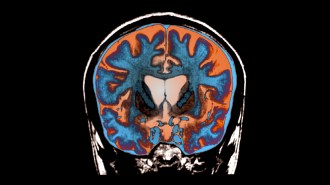 Health & Medicine
Health & MedicineIn a first, Huntington’s disease is slowed by an experimental treatment
An experimental gene therapy slowed Huntington’s by up to 75 percent in a small clinical trial. While not a cure, it may give patients longer lives.
-
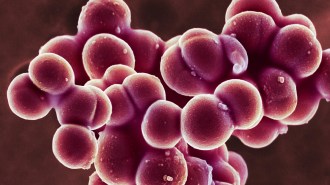 Microbes
MicrobesStaph bacteria are bad at letting go
Calcium, a mineral involved in wound healing, can strengthen the attachment between microbe and skin and make infections hard to shake.
-
 Health & Medicine
Health & MedicineWith little proof, Trump links Tylenol to autism and touts a treatment
The FDA plans to add a warning to Tylenol’s label and OK use of a drug for autism. Researchers say there’s little data to support either move.
-
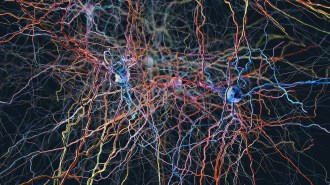 Neuroscience
NeuroscienceLung cancer plugs into the mouse brain
Exploring the relationship between cancer cells and nerve cells, which can signal tumors to grow, could unearth ways to slow disease.
-
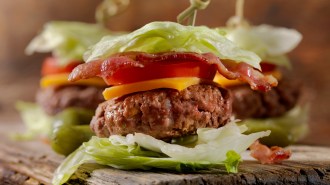 Humans
HumansStaying on the keto diet long term could carry health risks
Months on a high-fat keto diet put mice at risk for cardiovascular disease and impaired insulin secretion.
By Meghan Rosen -
 Animals
AnimalsBats live with some viruses. But others can do them in
Bats can carry some deadly human pathogens without signs of illness. A new survey shows that other viruses can still be bad for bats.
-
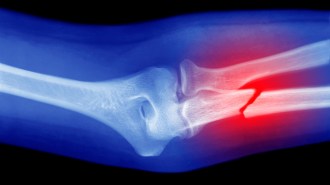 Health & Medicine
Health & MedicineA handheld ‘bone printer’ shows promise in animal tests
Demonstrated in rabbits, the 3-D printer might someday print bone grafts directly onto fractures, complete with antibiotics to ease healing.
By Payal Dhar -
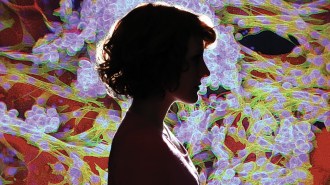 Health & Medicine
Health & MedicineWhy are so many young people getting cancer?
Diagnoses for several cancers before age 50 have been increasing rapidly since the 1990s. Scientists don’t know why, but they have a few suspects.
-
 Health & Medicine
Health & MedicineCancer patients froze reproductive tissue as kids. Now they’re coming back for it
Saving reproductive tissue from kids treated for cancer before adolescence could give them a chance at having biological children later in life.
By Meghan Rosen